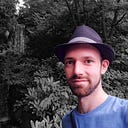Member-only story
Why and How To Question Every Little Thing
“One who believes all of a book would be better off without books” — Mencius
Books are the best way to learn knowledge acquired by people over their lifetime. You can even get to learn from people who are not walking the Earth anymore. Isn’t it great?
It’s easy to take a book and see it as a messenger for truth. And yet, nobody really has all the answers. To take the knowledge shared as a fact is a common mistake. That’s why there are books contradicting other books after all. As knowledge and research expand, we discover that some ideas were wrong.
“One who believes all of a book would be better off without books” — Mencius
While this is quite extreme, the idea behind this quote is right. And not just for books! If you believe anything you are told, without wondering about some parts, you’ll miss the “true truth”.
What is it?
That nothing is completely black or white. Nothing is exactly one certain way. Proof of one thing can be found to be false after further research even.
After all, everybody thought the Earth was flat at one point in the past. It was proven to be wrong and we were able to move on from this…
